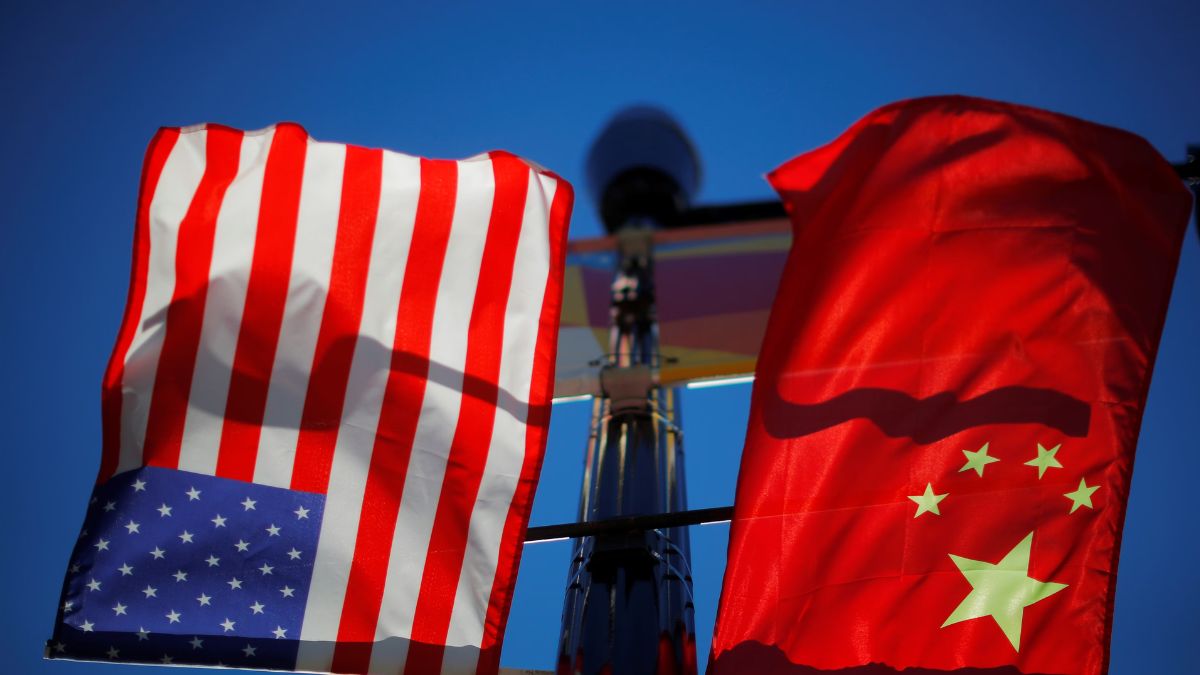President Donald Trump has boycotted the Brazil climate talks now entering their final week, leaving a notable gap at COP30 in Belém, where leaders from nearly 200 nations have assembled to determine the next steps in the global fight against climate change. The White House confirmed that no high-level US officials would attend this year’s conference. Trump has repeatedly dismissed human-caused climate change as “a hoax”.
Trump called climate change the world’s “greatest con job” and chided countries for setting climate policies that he said “have cost their countries fortunes.”
“The President is directly engaging with leaders around the world on energy issues, which you can see from the historic trade deals and peace deals that all have a significant focus on energy partnerships,” the White House official told Reuters in an email.
China moves to the forefront
With the United States missing from the United Nations’ annual international climate summit for the first time in three decades, China has moved into the limelight at COP30 in the Brazilian Amazon city. Its expansive pavilion dominates the entrance hall of the conference grounds, executives from major clean energy companies are outlining their visions for a green future to large English-speaking audiences, and its diplomats are working quietly to ensure constructive negotiations. Those roles once belonged to Washington but now sit with Beijing.
US exit reshapes global climate diplomacy
President Donald Trump’s decision to withdraw the United States — the world’s largest historic emitter — from the Paris Agreement, coupled with his refusal to send a high-level delegation to COP30, is reshaping global dynamics.
“President Trump will not jeopardise our country’s economic and national security to pursue vague climate goals that are killing other countries,” White House spokeswoman Taylor Rogers told Reuters.
China’s transformation from a quieter participant to a central player reflects a broader shift in global climate politics since Trump’s return to office. Critics warn that the US retreat risks ceding ground to China, now the world’s top greenhouse gas emitter and fast expanding its renewable energy and electric vehicle industries. “China gets it,” California Governor Gavin Newsom said during a visit earlier in the week. “America is toast competitively, if we don’t wake up to what the hell they’re doing in this space, on supply chains, how they’re dominating manufacturing, how they’re flooding the zone.”
China’s pavilion this year occupies prime space next to host nation Brazil, replacing earlier years’ modest set-ups. Visitors are drawn in with sustainable single-origin coffee, panda toys and branded merchandise as they watch presentations by Chinese officials and by leaders of companies at the forefront of the global clean-tech industry. “Let’s honour the legacy and fulfil the Paris [Agreement] vision guided by the vision of shared future,” Meng Xiangfeng, vice president of CATL, told an audience. “Let’s advance climate cooperation and build a clean, beautiful world together.”
Quick Reads
View AllCATL, the world’s biggest battery maker supplying one-third of batteries for EV manufacturers including Tesla, Ford and Volkswagen, hosted its first COP event. Earlier, China’s vice minister of ecology Li Gao told a packed session that China’s role as the world’s leading renewable energy producer “brings benefits to countries, particularly in the Global South”. State Grid, Trina, Longi and BYD, which introduced a fleet of plug-in hybrid vehicles compatible with biofuel manufactured in Bahia, were also among the presenters.
COP President Andre Correa do Lago and COP30 CEO Ana de Toni praised China’s role as a clean energy technology leader. De Toni said China had shown leadership “not only by carrying out its own energy revolution” but also by enabling global access to low-carbon technologies at competitive prices.
Beijing moves quietly behind the scenes as well
Beyond its visibility at the venue, China is also taking on a more subtle role in negotiations, filling the gap left by the United States, which in previous years frequently pushed governments towards agreement. “Little by little, China is acting as a guarantor of the climate regime,” said one senior diplomat from an emerging economy, noting China’s large investment in the green economy. A Brazilian diplomat said China had played a key part in helping secure agreement on the COP30 agenda before talks began, in contrast to earlier years when it engaged only on selected issues.
Sue Biniaz, former US deputy climate envoy and a key architect of the Paris Agreement, said China had the ability to unite diverse interests across the developing world, citing her experience working on four bilateral climate agreements with Chinese counterparts. “They tend to be very tough, take on tough positions like the U.S. did, but then be pragmatic towards the end,” she said. However, she added she was unconvinced China was yet leading beyond the pavilions, pointing to Beijing’s September pledge to cut emissions at least 7% from their peak by 2035.
Li Shuo of the Asia Society Policy Institute countered that China’s technological strength was itself a form of political leadership. “The most powerful country isn’t the one with the loudest microphone at COP,” he said, “but the one actually producing and investing in low-carbon technologies.”
Energy rivalry drives US and China in different directions
The deeper divide stems from contrasting national interests: the US has oil and gas to sell, while China dominates mining and processing of the minerals essential for the green transition. The US is the world’s biggest oil producer and a leading exporter of natural gas. China, with limited reserves relative to its population, instead commands the manufacturing capacity to produce renewable energy equipment at global scale.
This competition is not driven solely by climate concerns. Both nations are pursuing energy strategies shaped by economic priorities and national security. With entire industries at stake, Washington and Beijing are vying for energy autonomy, a race that may redefine how the global economy is powered.
)